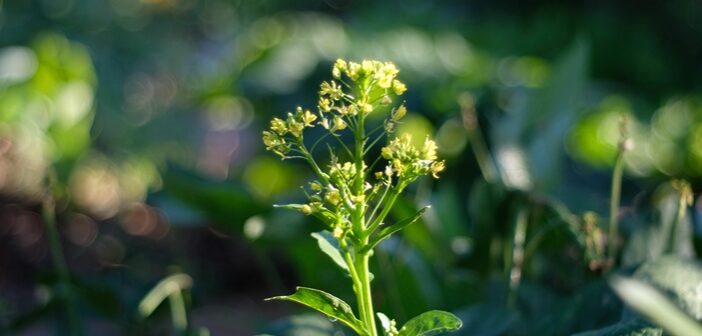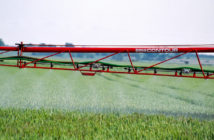In a major step forward for sustainable pigment production, scientists have successfully engineered the oilseed crop Camelina sativa to produce high levels of astaxanthin — a valuable red antioxidant used to colour farmed salmon and shrimp — using plant-derived genes rather than bacterial pathways.
The findings, from a joint US/UK research team of biotechnologists led by Prof. Edgar Cahoon, director of the Center for Plant Science Innovation at the University of Nebraska-Lincoln (UNL), could offer a commercially viable alternative to synthetic astaxanthin, which is currently produced through costly chemical synthesis or from limited natural sources like algae.
Astaxanthin belongs to a group of red pigments known as ketocarotenoids, which are valued not only for their colouring properties but also for their exceptional antioxidant capacity. These pigments don’t occur naturally in most crops, but by borrowing genes from the scarlet flax flower (Adonis aestivalis), researchers introduced a new ketocarotenoid biosynthesis pathway into Camelina seeds.
Unlike earlier efforts that used bacterial genes, this plant-derived pathway proved more efficient and cleaner. It converted nearly all the precursor β-carotene into ketocarotenoids, with astaxanthin making up over a third of the total — reaching around 47 micrograms per gram of seed.
Importantly, the extracted oil was notably more resistant to oxidation — a trait that may appeal to the food industry for uses such as oleogels in plant-based products.
So far the modified plants showed no stunting or visible signs of stress in the field, and the results were replicated across multiple growing seasons in both the US and UK.
“With growing pressure to find natural, scalable alternatives to synthetic additives, we believe this approach could pave the way for a new generation of sustainable pigment-rich oilseeds,” said Rothamsted’s Dr Richard Haslam, one of the co-authors of the research paper.
Professor Johnathan Napier commented, “The Rothamsted team was very pleased to be part of this highly successful collaboration resulting in crops with enhanced traits. It’s also great to test our prototype plants under real-world conditions in the field.”
UNL and Rothamsted will now investigate how to commercialise this technology.




